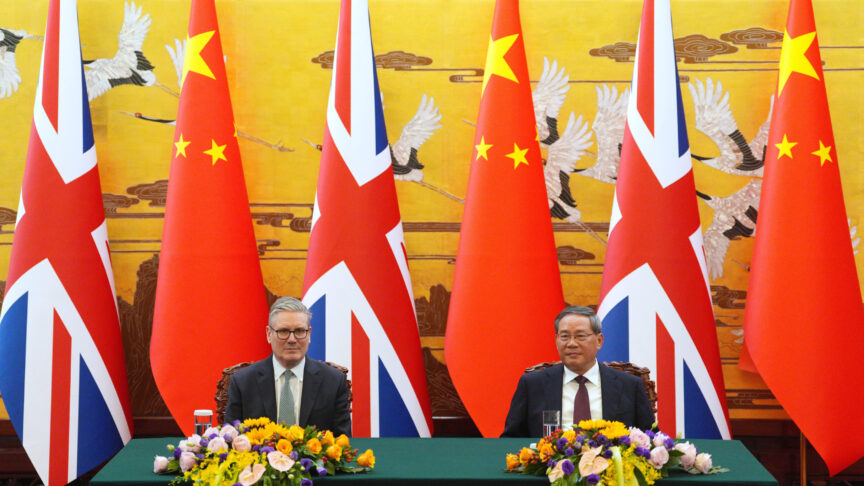The rise of ?herbivorous powers??
A global public opinion survey shows that there is growing public support for a more multi-polar world, and 35% of world citizens would like to see the EU’s influence to grow
Listen to a discussion of the poll results with Robert Kagan, Ivan Krastev and Mark Leonard:
In the run-up to the Iraq war, Mary Robinson called global public opinion the “second superpower”. She may have been exaggerating its impact on the Gulf, but she was right to point to the legitimacy of power as an increasingly important factor in world politics.
Even in the many places where citizens cannot vote in free and fair elections, governments are constantly “polling’ the public to understand their aspirations and pre-empt them. Who will gain and who will lose from the emergence of a global public opinion? Which of the current great powers will succeed in capturing publics’ imagination?
The results of the ECFR/Gallup International survey – the world’s largest survey this year based on the interviews of 57,000 people from 52 countries – shows that the world is increasingly hostile to military power, and drawn to new “herbivorous” centres of powers.
Of all the great powers, it is the European Union whose influence is most desired by world citizens. More than a third of respondents (35%) see an increase in its power as key to the development of a better world, whilst only 20% want to see its power decline. India, South Africa, and Brazil also polled well (27%, 26%, and 23% wanted their power to rise, while 20%, 18%, 17% wanted it to decline).
On the other hand, the US, Iran, Russia and China all provoke more negative than positive reactions. Whilst 23% and 24% of respondents respectively would like Russia’s and China’s importance to increase, 29% and 32% believe the world would benefit from a decline in their power. The influence of Iran and the US are the most resisted by world citizens. Although 26% of respondents declare that US should grow, 37% think the opposite. In the case of Iran, 39% would like to see its influence decline, while only 14% are in favour of rising. The negative perceptions of Russia, China and Iran seem to be connected with the fact that they are perceived not so much as rising economic or political powers as military powers.
The distinctive characteristic of the new world order seems to be that it will be determined not simply by the balance of ‘hard power’ (the ability to use economic or military power to coerce or bribe countries to support you), but by the balance of what the American academic Joseph Nye has called “soft power”- the ability to get what you want through attraction rather than coercion and payment, arising from the appeal of your culture, political ideals, and policies. Paradoxically nothing seems to erode soft power as much as the possession of military power.
Each continent has a different approach to power. Respondents in Africa and Latin America marked two extreme positions. On the one hand, a majority of Africans welcome the increase of almost all of the rival centres of power (there is support for more power to the US, the EU and China).
Africa’s biggest fear seems to be the danger of being abandoned by the powerful. Latin Americans, on the other hand, seem more worried by an excess of interest from great powers, than their indifference. Public opinion in the region is at best skeptical, and often hostile, to the increase of the global influence of the powers that are outsiders to the region.
The European Union is unique among the big four powers (the other three being US, China and Russia) in that no one wants to balance its rise. It is striking that a continent with a military budget second only to the United States, and the biggest number of peace-keeping forces serving in the world seems to be perceived as a non-military power.
This shows that it is misguided for EU policy-makers to obsess about achieving ‘greater visibility’ for EU power. The fact that European peace-keepers tend to wear a NATO or a national flag rather than a European one helps to make the EU seem less threatening.
Even former European colonies support an increase in EU power, demonstrating that the colonial legacy of EU member states is declining in importance. What is more, unlike the United States, the EU is highly appreciated in its own neighborhood. The paradox of the EU’s power is that it strength is also rooted in its perceived weakness.
The fact that nobody is interested in balancing the EU may stem – at least in part – from a perception that the EU is unlikely to get its act together.
Has Europe benefited from the collapse in American soft power in the wake of the Iraq war? The findings of the survey demonstrate that while in Europe – and in Western Europe in particular – the EU’s stress on multilateralism and distaste of power politics is perceived as an alternative to America’s unilateralism, in many parts of the world the EU and the US are perceived not so much as alternatives as twins. The dynamics differ from region to region, but there seems to be a hardening anti-Western block in global public opinion.
Foreign policy debates in recent years have centred on the question of how to deal with the ‘unipolar moment’ – how to balance American power? But this survey reveals that in many parts of the world, a new question is being asked: how can America balance the rise of the newly emerging global powers that threaten their neighbors? It is not by accident that in Asia – the new battlefield of the titans there is a great appetite for an increase in America’s power. It is also intriguing to see that while the American public is openly hostile to the increase of Russia’s influence in the world; the Russian public is much more positive in its view of America.
This poll shows that the multi-polar world might lead to a resurgence of American influence – not as a model to the world, but as a buttressing force against new pretenders to regional dominance.
Download the Policy Brief: New World Order: The balance of soft power and the rise of herbivorous powers (by Ivan Krastev and Mark Leonard) published on 24 October, 2007.
The European Council on Foreign Relations does not take collective positions. ECFR publications only represent the views of their individual authors.


